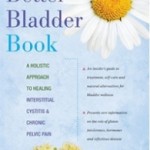 When Wendy Cohan RN wrote the Better Bladder Book, she was the first to suggest a connection between wheat and interstitial cystitis. Given the fact that many IC patients struggle with irritable bowel syndrome as well as other obscure food sensitivities, this study offers insight into what may be going on. Some, but not all, IC patients have reported that eliminating wheat from their diet has dramatically improved their bladder and bowel symptoms. This study suggests that a wheat sensitivity may be present and could be the root of some IBS problems. While they are not studying IC patients, the data is compelling. IC patients may want to try eliminating wheat from their diet for a brief period of time to see if their symptoms improve. – Jill O.
When Wendy Cohan RN wrote the Better Bladder Book, she was the first to suggest a connection between wheat and interstitial cystitis. Given the fact that many IC patients struggle with irritable bowel syndrome as well as other obscure food sensitivities, this study offers insight into what may be going on. Some, but not all, IC patients have reported that eliminating wheat from their diet has dramatically improved their bladder and bowel symptoms. This study suggests that a wheat sensitivity may be present and could be the root of some IBS problems. While they are not studying IC patients, the data is compelling. IC patients may want to try eliminating wheat from their diet for a brief period of time to see if their symptoms improve. – Jill O.
Data Casts New Light on Non-Celiac Wheat Sensitivity: Is it an Allergy?
Newswise — Patients with non-celiac wheat sensitivity (NCWS) and other food sensitivities showed clinical, laboratory and histological characteristics suggesting they may be suffering from a non-IgE-mediated food allergy, according to the article, “Non-Celiac Wheat Sensitivity as an Allergic Condition: Personal Experience and Narrative Review,” published in The American Journal of Gastroenterology.
 In this review, lead author Antonio Carroccio, M.D., from the University of Palermo in Palermo, Italy, examines prior data regarding NCWS and other relevant medical literature, focusing on NCWS patients who may suffer from non-IgE-mediated wheat allergy. Non-celiac wheat sensitivity (NCWS) is characterized by symptoms that can involve the gastrointestinal tract, the nervous system, the skin and other organs. The only common denominator of NCWS is wheat consumption: the symptoms disappear on exclusion of wheat from the diet, and reappear on wheat consumption.
In this review, lead author Antonio Carroccio, M.D., from the University of Palermo in Palermo, Italy, examines prior data regarding NCWS and other relevant medical literature, focusing on NCWS patients who may suffer from non-IgE-mediated wheat allergy. Non-celiac wheat sensitivity (NCWS) is characterized by symptoms that can involve the gastrointestinal tract, the nervous system, the skin and other organs. The only common denominator of NCWS is wheat consumption: the symptoms disappear on exclusion of wheat from the diet, and reappear on wheat consumption.
Food allergies are typically divided into two areas: IgE mediated or non-IgE mediated. In IgE mediated food allergies, people develop symptoms almost immediately after eating, and when blood and skin tests are carried out, there is a positive marker. Non-IgE mediated food allergies, including celiac disease, primarily affect the GI mucosa (the innermost layer of the gastrointestinal tract) and have a delayed onset of symptoms, which can make it difficult to diagnosis.
Dr. Carroccio and his colleagues reviewed data on 276 patients diagnosed with NCWS using a double-blind placebo-controlled wheat challenge. The data indicating a possible wheat allergy diagnosis and other data in the literature were examined. The authors hypothesize that patients with NCWS may be suffering from non-IgE mediated food allergy.
“We reviewed the role of serum immunoglobulin G antibodies and the basophil activation assay in food allergy, as well as the histology findings in the food allergy diagnosis,” said Dr. Carroccio. “We compared patients suffering from NCSW and irritable bowel syndrome (IBS) to controls with IBS not due to NCWS.”
The review also suggests a link in wheat withdrawal and the intestinal microbiota. “A change in diet with wheat withdrawal can also cause a change in the intestinal microbiota. This is now considered a crucial element in IBS pathogenesis. Future studies in NCWS patients should consider the role of diet in the microbiota and, in turn, on the intestinal immune system,” Dr. Carroccio added.
Based on his review, Dr. Carroccio concluded, “Non-celiac wheat sensitivity can now be considered the cause of gastrointestinal symptoms, which overlap those commonly attributed to functional disorders. However, many doubts remain and it must be underlined that we must utilize the double blind placebo-controlled challenge method to confirm the suspicion of non-celiac wheat sensitivity and then study the pathogenesis of that specific clinical manifestation. A confident NCWS diagnosis must exclude a placebo effect.”
For more information, listen to ACG’s December 2012 podcast “Non-Celiac Wheat Sensitivity: Distinct Clinical Condition?” featuring William D. Chey, M.D., FACG, and Joseph A. Murray, M.D., FACG.
About Non-Celiac Wheat Sensitivity (NCWS)
Many gastrointestinal and extragastrointestinal symptoms have been attributed to NCWS. Non-celiac wheat sensitivity shares many symptoms with celiac disease, such as abdominal pain, bloating, diarrhea, constipation, nausea, vomiting and more. Individuals with non-celiac wheat sensitivity have a prevalence of non-GI symptoms, such as headache, tiredness, foggy mind, depression, disturbed sleep pattern and mood swings. Symptoms typically appear hours or days after wheat has been ingested.
